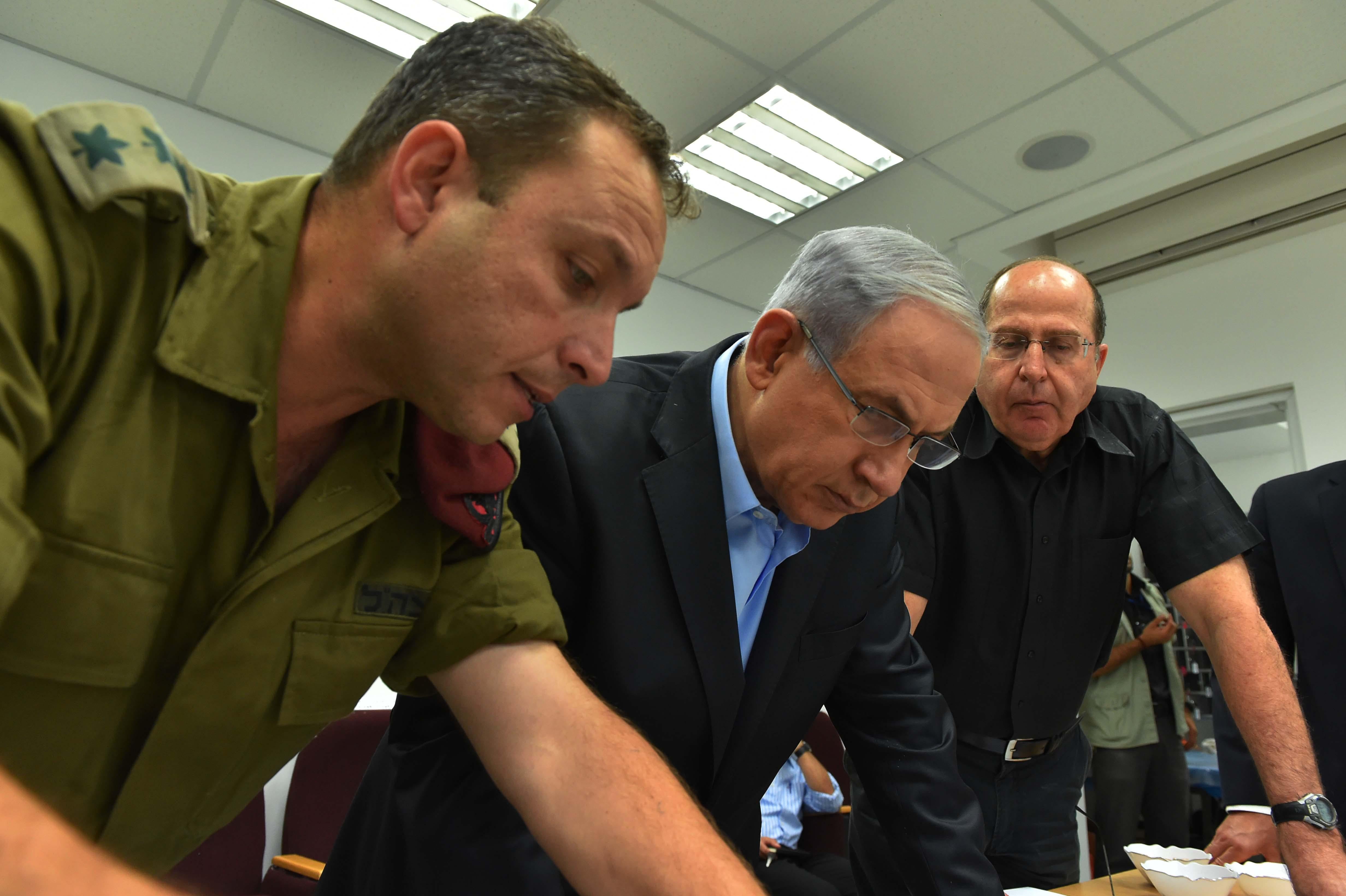Israel has apparently now agreed to a U.N. request for a five-hour humanitarian cease-fire tomorrow, but things aren’t likely to stay quiet for long. A military official tells the New York Times that the likelihood of a ground invasion of the Gaza Strip is “very high” and that dealing a meaningful blow to Hamas’ ability to fire rockets into Israel could require an operation “of many months.”
One aspect of the situation that’s gotten comparatively little attention is that hardline members of Prime Minister Benjamin Netanyahu’s Cabinet seem to be pushing the Israeli government toward a more aggressive campaign. Netanyahu is hardly pushing for accommodation, but the most aggressive political pushback he’s gotten during this campaign is from the right, not the left.
Yesterday, Netanyahu fired his deputy defense minister, Danny Danon, a member of his own Likud party, for saying that the short-lived cease-fire yesterday had humiliated Israel.
Netanyahu had faced heavy criticism in the Cabinet for accepting the Egyptian-proposed cease-fire, particularly from Danon, Foreign Minister Avigdor Liberman, and Economy Minister Naftali Bennett of the right-wing Jewish Home party.
Liberman has been the loudest voice calling for an occupation of Gaza and has split his Yisrael Beiteinu party from Netanyahu’s Likud over what he sees as the prime minister’s tepid response to rocket attacks from Gaza.
“We must go all the way, there is no alternative. We have to end this conflict with the IDF in control of all of Gaza. … There is no other way to tackle the Hamas and Islamic Jihad terror that rules Gaza,” he has said. Cabinet meetings have apparently become extremely heated, with Netanyahu favoring a more limited campaign. Netanyahu seems to be particularly enraged by Bennett, Danon, and Liberman publicly criticizing the government.
At the moment, the debate seems to be less about whether to stop the fighting—both Israeli public opinion and Hamas seem to be against that—than about whether to escalate the conflict significantly by launching a ground invasion. Momentum seems to be with the most aggressive voices in Netanyahu’s Cabinet. Moderates like Justice Minister Tzipi Livni and Finance Minister Yair Lapid—whose election last year was seen by some as a sign of a potential centrist revival in Israeli politics—have been a lot quieter lately.
